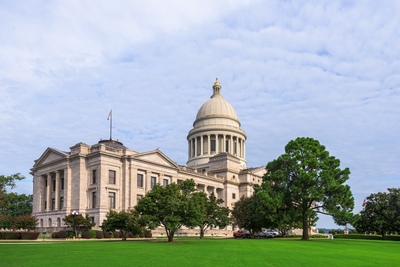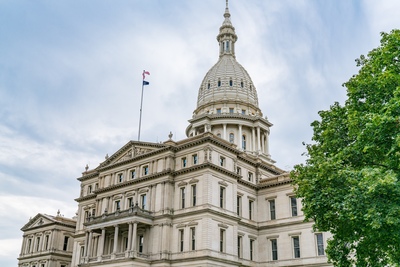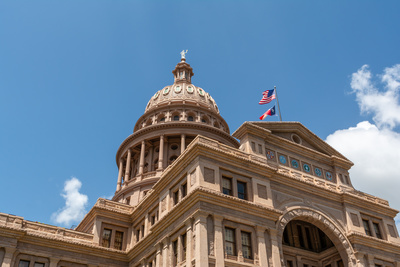
Elections & Campaigns
Legislation Addressing Foreign Influence in Elections Expanded Across Multiple States in 2025
January 23, 2026 | Andrew Jones
April 14, 2022 | Bradley Coffey
-58d981-1200px.jpeg)
Key Takeaways:
Federal candidates have been dealing with contribution limits for political donations since 1974 in amendments to the Federal Election Campaign Act. Since then, donors to federal candidates have had to be aware of and stay within the per candidate contribution limits established by the Act and regularly updated by the Federal Election Commission (FEC). The states however, are a different story with a patchwork of laws regarding how much can be donated, when these donations can be given, and who can donate.
In a previous article, we covered who can donate. Specifically states that permit political contributions from corporate treasuries. In this article, we’ll look at state contribution limits for corporations and political action committees in election cycles that include 2022.
Currently, 13 states permit unlimited contributions from political action committees to state candidates. Other states have varying limits on the amount of contributions permitted during an election or election cycle:
21 states and Washington, DC, a majority of states, have contribution limits between $1 and $2,499;
Six states have contribution limits between $2,500 and $4,999;
Five states have contribution limits between $5,000 and $7,499;
Two states have contribution limits between $7,500 and $9,999; and,
Two states have contribution limits exceeding $10,000.
These numbers are the limits in place for the 2022 elections and do not necessarily include the nuances of the contribution limits in each state. For example, New York’s contribution limits for state Senate candidates change based on the type of election being conducted while state Assembly candidate limits stay consistent. Additionally, this map only shows contribution limits for legislative candidates. 24 states have varying contribution limits depending on the office sought by the candidate. Wyoming is in the $5,000-$7,499 category on the map above but statewide candidates enjoy unlimited contributions from political action committees.
As we discussed in our article on corporate contributions, states vary when it comes to whether state candidates can accept corporate contributions. Unsurprisingly, they also vary in the contribution limits placed on corporate donors. In addition to the 22 states that currently prohibit corporate contributions:
15 states, including Washington, DC, have a corporate contribution limit between $1 and $2,499;
Five states have a corporate contribution limit between $2,500 and $4,999;
Four states have a corporate contribution limit between $5,000 and $7,499;
Tennessee is the only state with a corporate contribution limit between $7,500 and $9,999;
Illinois is the only state with a corporate contribution limit exceeding $10,000; and,
20 states prohibit corporate campaign contributions.
Just like political action committee limits, the map above comes with some caveats. Particularly for those states that prohibit corporate contributions. Many of these states permit corporate contributions to independent expenditure committees in the state which would still permit the corporation to participate in the election, just not directly and in coordination with a candidate.
Additionally, corporations can contribute in Washington State however, the corporation must be “doing business” in the state in order to directly give to a candidate. Washington illustrates that, while knowing the contribution limit is important, it’s arguably more important to know the peculiarities of jurisdiction’s campaign finance laws before finalizing your political giving strategy lest your corporation end up on the front page of the local (and sometimes national) newspapers for violating the law.
Is your corporation seeking to engage in state and local elections and not sure what your compliance requirements are? We can help. Don’t make illegal contributions — reach out to our team with questions.

January 23, 2026 | Andrew Jones

January 7, 2026 | Ben Seitelman, Bradley Coffey

January 5, 2026 | Chase Klingensmith, Dylan Busler